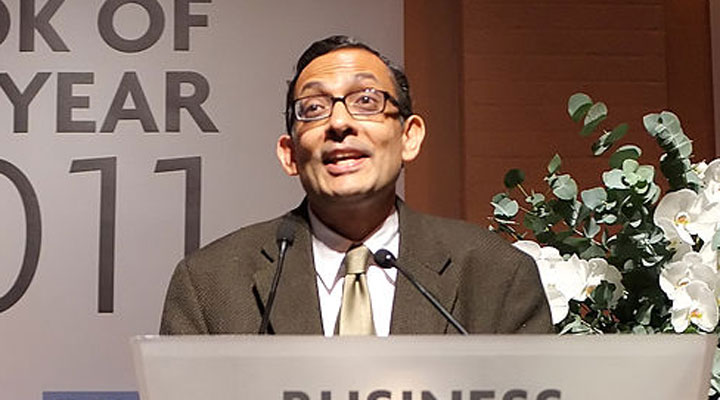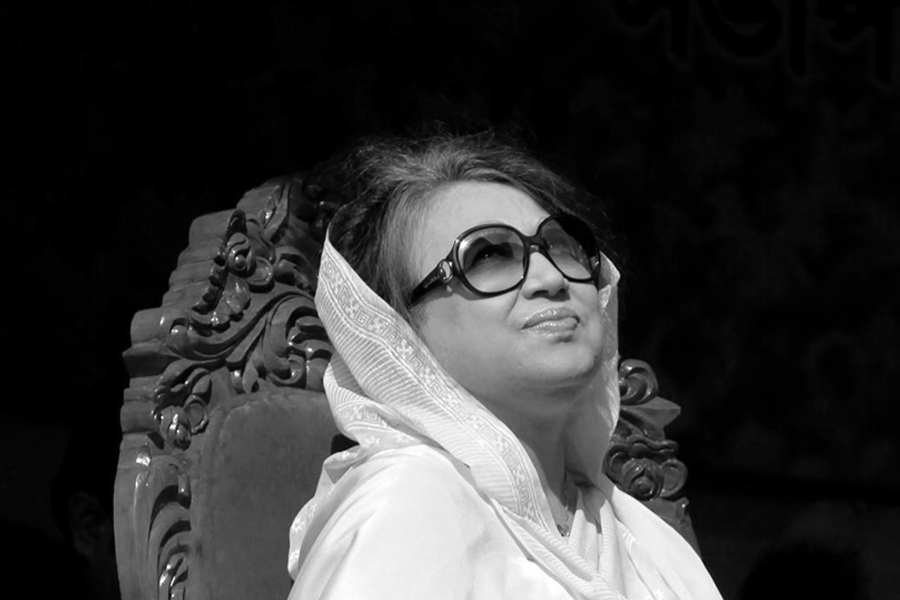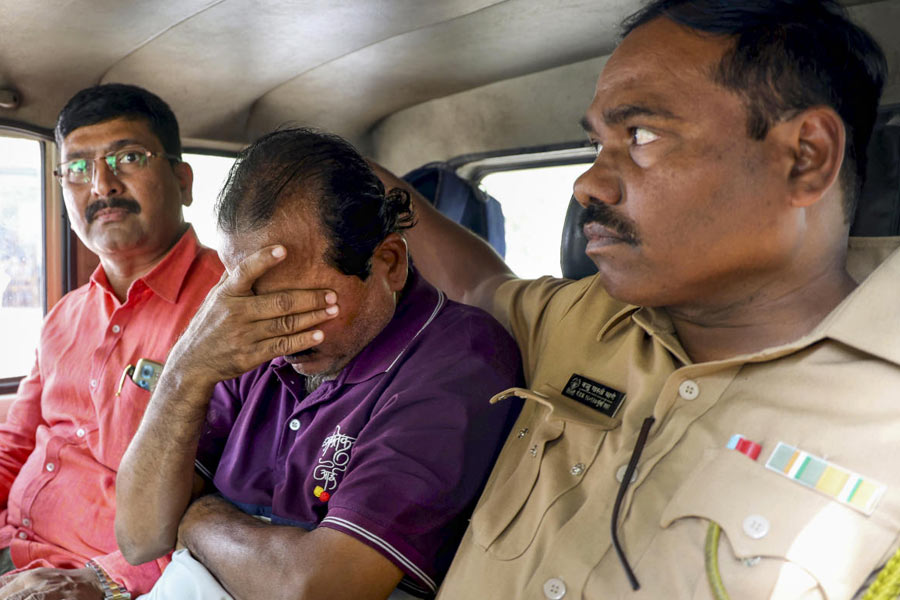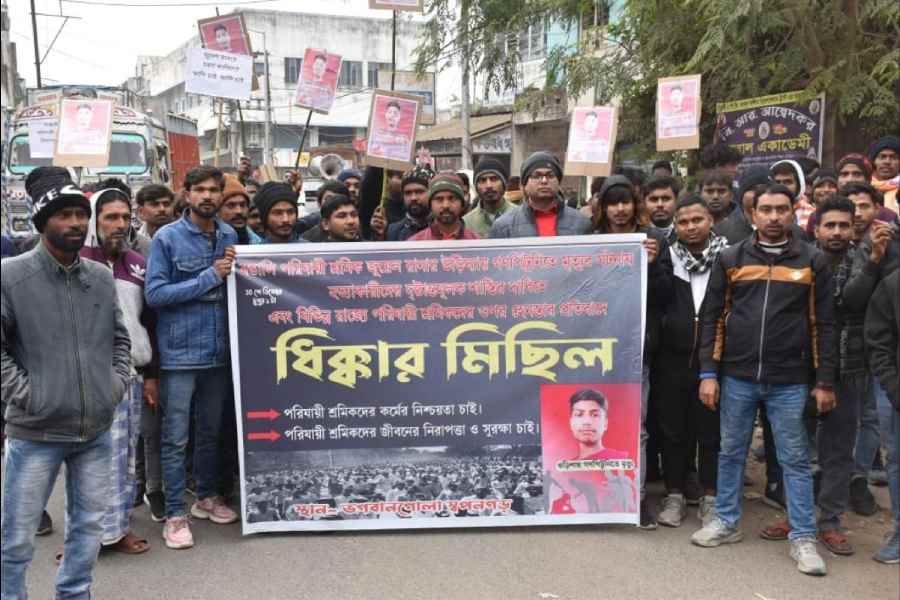 |
He went to a good school in Calcutta but had playmates who did not go to school at all. The boy noticed how most of these friends — who used to live in little ramshackle houses behind his home — had more time to play and they could beat him at any sport. The behaviour of these children stirred several questions in the mind of the boy, born to two eminent teachers in economics — Dipak and Nirmala Banerjee. And these questions keep coming back to the boy who, by sheer chance, became a student of economics at Presidency College and later honed his skills in the subject at Jawaharlal Nehru University and Harvard University.
The boy grew up to become the Ford Foundation International Professor of Economics at the Massachusetts Institute of Technology. In the past 15 years or so, he has travelled the world and used every possible empirical tool at hand to understand the lives of the poor. The findings were brought out in a book — Poor Economics — that he co-authored with fellow MIT professor Esther Duflo.
Abhijit Vinayak Banerjee, who describes himself as an old-fashioned social scientist, has decided to continue with his efforts to find out more about the lives and choices of the poor in an attempt to find answers on how to fight global poverty. The 51-year-old economist was crowned Shera’s Shera at the STAR Ananda Shera Bangali Awards 2012 on Friday. During his brief stay in the city, he sat down at his Ballygunge home for a chat with The Telegraph.
Being the recipient of the Shera’r Shera award
It’s a bit silly… You start doubting whether there is any content to the word Shera. I am certainly happy, but am a bit embarrassed. There are so many great people around.
Authoring Poor Economics
I am very happy that we (Duflo and Banerjee) took time and trouble to write Poor Economics, which meant something to people. It could have been just another book that somebody writes, but nobody reads. We had never really written a book before that was clearly aimed at a popular audience and we had no reason to expect that it will be successful. But we are happy that it has got a popular audience.
 |
A pitch for the next book
I would like to write another such book at some point… I certainly don’t think of myself as someone who writes a book a year. So, it will take time. In some very vague sense, I am trying to frame what it would be like. That’s the hard part, the hard part is to have a pitch. I can write a lot of paragraphs, but for a book it has to go beyond a set of paragraphs.
The academic’s search for answers
All of us — academics and non-academics — have theories of how the world functions. I think the only thing that makes academics different is that they want the theory to be as internally coherent as possible. I look at the world and I feel like I have a theory of this and a theory of that and the question is how compelled you feel to try to pull them together into more minimal theories.
I think an academic — especially in the social sciences — is always trying to find some parsimonious principle to allow them to order the world. I think it is always that which — for me at least — makes me rethink something. Say there is a particular proposition that I kind of take as given and then some fact shows up, which doesn’t fit into that. And then our academic training makes us ask the question, if that is not true, then what else is not true. That’s the strength of academics… It doesn’t permit us to finish with ‘ok, well, that’s interesting…’. We always feel the need to go beyond that.
Understanding poor
What do economists mean when they say someone is poor? Of course, the answer will be those with less money or less food. This answer, however, is not analytical. The question that we were trying to look at was when we think of someone being poor, whether the very fact of being poor implied a certain type of behaviour.
It is important to understand under what condition, people, who are otherwise identical, end up behaving in ways that look different just because they are poor. The question is, why do/don’t we see a certain behaviour among poor?
Calcutta and poverty
The condition in which you grow up frames what you are interested in. If you grew up in Latin America in the 1980s and you became an economist, you would be interested in how economies fall into crisis. They had faced economic crisis in that period. If you grow up in Calcutta, you want to know more about the poor people and how this can be addressed.
Economist by chance
I had joined the B.Stat programme at the Indian Statistical Institute…. After attending a few classes, I found the course intimidating and I decided to beat a retreat. Then the question was what will I do? As I was reasonably good in mathematics and was more or less sure of getting into ISI, I didn’t sit for other competitive examinations, like the joint entrance examination for the IITs.
Although both my parents were teachers of economics, they did not directly tell me to study economics…. I remember that my father had told me to take up a subject where mathematics is utilised. Physics was a serious alternative…. But I didn’t opt for it as I knew that there were so many people around who had taken up the subject because of their love for physics. I didn’t have any special interest…. I took up economics because I had known people who also didn’t have any specific interest like me studying the subject.
Beyond economics, cooking...
I consider myself as a serious cook and I cook something or the other almost everyday. I have had this interest in cooking since childhood and I think the environment at home played a role in it. I grew up in an environment where people — especially my aunts — could constantly talk about food. Despite her busy schedule, my mother used to try out different recipes and the best way to chat with her was to be by her side while she was cooking. I used to assist her in cooking by doing something or the other. The habit stayed on with me…. Being a carnivore, I eat almost everything and try to cook them as well. I love Bengali food very much and have it at least twice or thrice a week.
... and adda
The other thing is adda…. I think the extent to which I indulge in adda is much more than most of the people around me. This habit can also be linked to what I saw at our home…. People used to drop by at our home in the evening for adda sessions.
The unsung Bengali
I want to name two persons, whom I worship. They haven’t got much publicity and are not that high up in the Bengali pantheon. But I have immense respect for them.
One of them is Prasanta Chandra Mahalanobis, whom I consider as a pioneer in the field of empirical statistics. He was much ahead of his time and there was absolute brilliance in his vision. He was the man who thought of carrying out large-scale household surveys before anyone else in the world. He devised the technique to be used and the questions to be asked to carry out such an exercise. He was also the man behind the Indian Statistical Institute, which was regarded as world-class from the very beginning.
The other person is Buddhadeva Bose, who had immense intellectual breadth and power. He was an outstanding essayist and had the ability to see the big picture. He had immense intellectual generosity. He was a pioneer in promoting literary studies and in particular the systematic study of comparative literature (at Jadavpur University).
Mentoring Presidency’s transition
I am very impressed with the work that the first two vice-chancellors (Amita Chatterjee and Malabika Sarkar) have done for Presidency University. So far, the process (the attempt to turn Presidency into a world-class university) has been stellar. There seems to be a lot of good applications for the post of teachers…. It remains to be seen whether good applications finally result in good recruitment.
What question would you like to ask Abhijit Vinayak Banerjee? Tell ttmetro@abpmail.com










